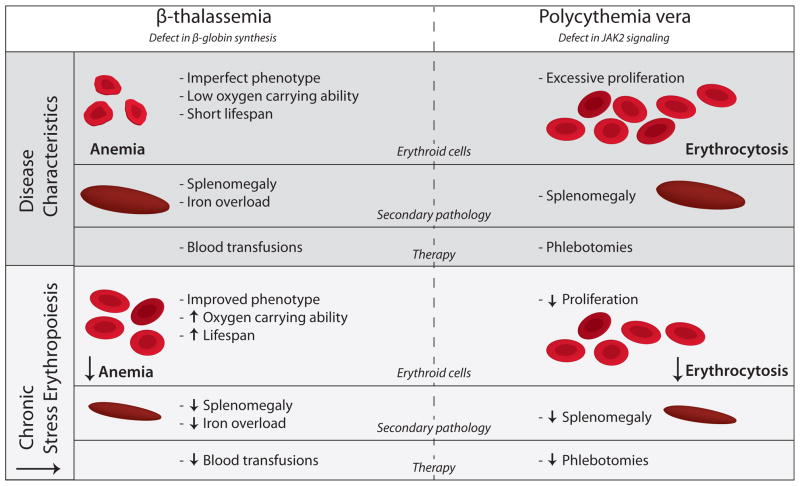Figure 2.
Disease characteristics of β-thalassemia and Polycythemia and the effect of reducing chronic stress erythropoiesis.
β-thalassemia is characterized by a defect in β-globin synthesis, leading to the formation in imperfect erythrocytes with reduced oxygen carrying ability and short lifespan. As a result, patients have anemia, splenomegaly, and iron overload due to increased iron absorption. Therapy consists of blood transfusions, which may aggravate iron overload even further. Polycythemia vera is caused by a defect in Jak2 signaling, resulting in excessive erythrocyte production, causing erythrocytosis and splenomegaly. Therapy includes phlebotomies to reduce hematocrit and prevent secondary complications.
In both disorders reduction of chronic stress erythropoiesis improves the pathological phenotype, leading to reduction of anemia, splenomegaly and iron overload in case of β-thalassemia, and reduction of hematocrit and splenomegaly in case Polycythemia vera. As a consequence, the frequency of therapeutic interventions may be reduced.

